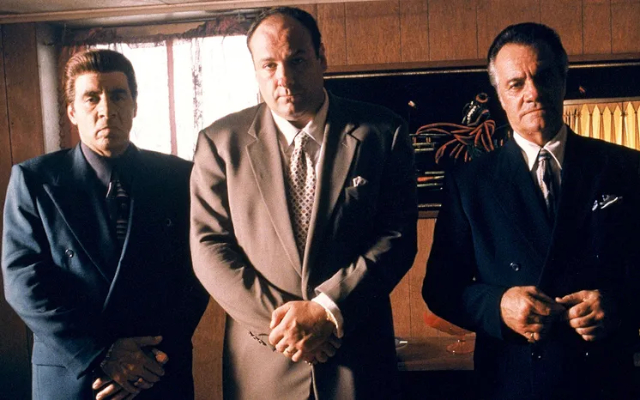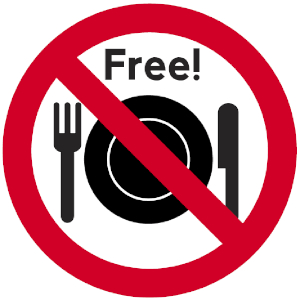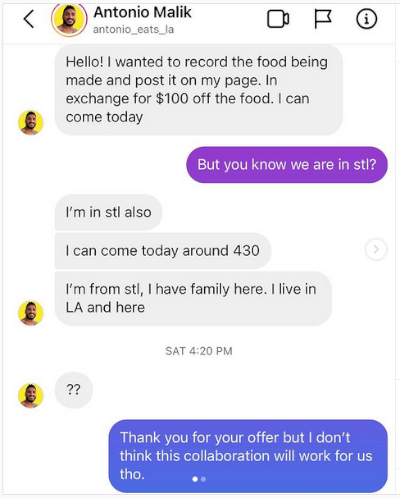So I surfed over to one of my fave food news sites as usual this morning and tripped over a story on my way in the door – a story that made me angrier and angrier the more I read. Seems at least one food-blogging ‘influencer’ has turned their fame to fortune, extorting restos…
 Senior members of the Soprano ‘family’: Not good role models for restaurant reviewers…
Senior members of the Soprano ‘family’: Not good role models for restaurant reviewers…
As a professional journalist, I take most severe umbrage at the suggestion that I would ever take a payoff, or accept a free lunch or even a single beer from someone that wanted to influence a story I was working on. It’s the first commandment of Journalistic ethics: “Thou shalt not accept any gratuity!” In 47 years, I’ve never broken that golden rule.
If you want to call yourself a journalist, you have to maintain a bullet-proof policy of objectivity and impartiality. Not only must you be impartial; sometimes you have to take pains to be clearly seen as impartial. It’s your professional reputation that’s at stake. And if you lose it, or even tarnish it, you’re sunk. If you stay in the writing biz after that, you’d better try your hand at novels, and publish under a nom de plume. Or resign yourself to composing obits and the Rotary Club news for a small town weekly.
Which brings me to the story that got me so mad earlier today, before my first coffee…
The Case of the Hungry Hack
A well-known food blogger from Los Angeles was called out by a St. Louis, Missouri, Chinese restaurant after trying to extort a $100 discount on food, in return for a sterling review. That’s worse than not being impartial. That’s just like a mobster demanding ‘protection money’ from a resto.
The eatery, Corner 17 Noodles and Bubble Tea, reported on its Instagram account, that Antonio Malik (@antonio_eats_la), who was in St. Louis visiting family, had contacted them ‘suggesting’ a steep discount in return for a review. (See screen grab below, left.) The resto declined his offer and, in return (or should I say, in retribuition?), Malik posted a bad review on his blog. Not sure, but it appears he never even went to the resto, much less ate there.
I don’t know how often this happens, but I have a sneaking suspicion it happens a lot, especially among food bloggers who manage to attain some fame, and become what is known as ‘influencers’.
If I was a restaurant reviewer, I’d keep my identity secret, make reservations under assumed names, and never ever let my picture be published at the head of my column or online. I’d even use a pen name on my work, come to think of it. Why take chances that someone would try to influence me into giving their restaurant a bogus 5-star review?
Taking a stand
If you think the resto was more polite than the situation justified in its msg system reply to Malik, check out its longer, defiant, well-reasoned come-back in the comment section of the Instagram post.
“ An intentionally bad write-up from a large following influencer because of our refusal to accept their collaboration is unprofessional and a such hostile manner can simply ruin their businesses. […] I want to step up because we felt threatened by this media influencer. I want to give a voice to my Asian community that is ok to say no and turn down any promotional offers, no fear to stand up and defend yourself.”
Are you influenced by ‘influencers’?
Maybe you should be a little more critical of the ‘opinions’ you encounter online.
Muse on that…
~ Maggie J.


